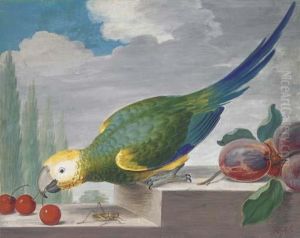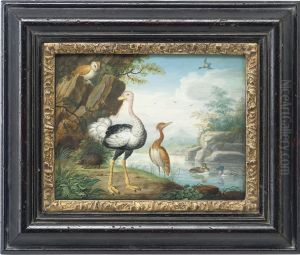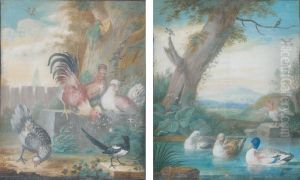J.F. Hefele Paintings
J.F. Hefele, born Johann Friedrich Hefele on March 15, 1811, in Unterkochen, Württemberg, Germany, was not an artist in the traditional sense of painters or sculptors, but made significant contributions to the world of art history, ecclesiastical art, and Christian archaeology through his scholarly works. Hefele's primary vocation was that of a theologian and church historian, and his impact on art history is largely through his extensive studies on the councils of the church, which indirectly influenced the understanding of Christian art and its evolution.
Hefele's academic journey began at the University of Tübingen, where he was deeply influenced by the Tubingen School, a group of theologians and scholars with a critical approach to the study of church history and dogma. After completing his studies, he was ordained a priest in 1834. His scholarly pursuits led him to delve into the historical aspects of church councils, culminating in his most famous work, 'Conciliengeschichte' (History of the Councils of the Church), first published in 1855. This comprehensive work, which detailed the proceedings and outcomes of the ecumenical councils, was groundbreaking and remains a reference for scholars of ecclesiastical history and Christian art.
The significance of Hefele's work for art historians lies in the intricate connection between the decisions of the church councils and the development of Christian art and iconography. For instance, the Second Council of Nicaea in 787, which dealt with the Iconoclast Controversy, had profound implications for the production and veneration of icons in the Byzantine tradition. Hefele's detailed accounts of such councils provide crucial insights into the theological and doctrinal underpinnings that shaped the visual culture of Christianity.
Beyond his major work on the councils, Hefele's contributions to art history and Christian archaeology are recognized through his lesser-known writings and lectures, which often explored the intersections of theology, liturgy, and art. His academic career was marked by his appointment as a professor at the University of Tübingen and later, his elevation to the episcopate as the Bishop of Rottenburg.
Johann Friedrich Hefele passed away on June 5, 1890, in Rottenburg am Neckar, Germany. Though his primary legacy is as a theologian and church historian, his work continues to be of interest to those studying the history of Christian art, offering a unique perspective on how doctrinal debates and decisions influenced the development of religious art throughout centuries.


